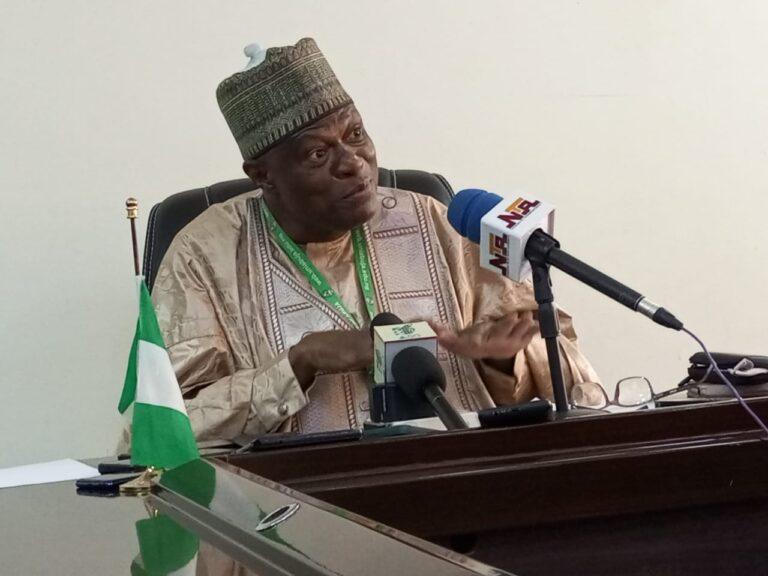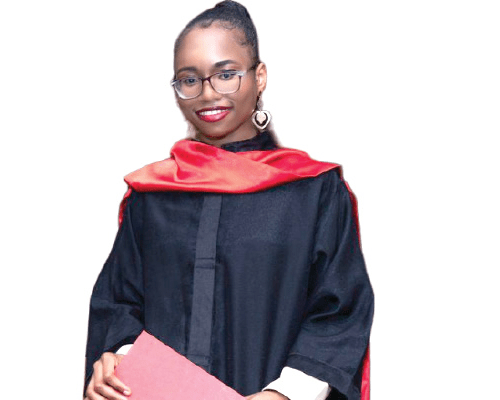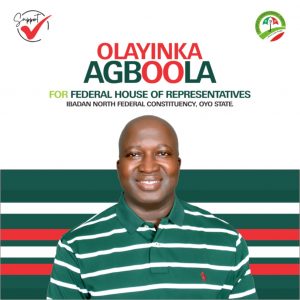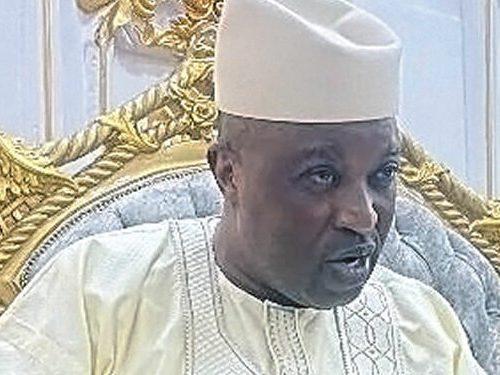When Abdul-Rasheed Na’Allah, the vice-chancellor of the University of Abuja, took over the leadership of the institution in 2019, he set up an agenda to make UniAbuja a global brand. Under his watch in the last four years, the university has embarked on different initiatives, which include a partnership with the Chinese government to introduce railway engineering as an academic programme. In this interview, Na’Allah said the university has mandated every student to register a company with the Corporate Affairs Commission (CAC) to ensure they are employers of labour.
How have the first four years in the office been?
Na’Allah: I would say that these four years have presented me with a chance to set an agenda in which I worked with colleagues so that it would not look as if the vice-chancellor is the only one running around. It is all of us together as a university that set the agenda, to say in this five-year tenure that we are going to be spending, these are the kinds of things we want to do.
When I came here, the students’ welfare as far as I was concerned was almost zero. One of the first things I did was to go around hostels and I almost shed tears from the kind of dilapidation I saw.
I felt that our students were living in an abject level of dilapidation. I mean it was horrible. I saw that the campus was nothing to write home about and we still heard people calling the University of Abuja a glorified secondary school because of the nature of our campus at the time.
We had some faculty members at the main campus. We had some at the mini campus, back and forth we were going. I saw a university that really wanted to be refocused on its original agenda, especially the original goal set by the founding fathers to lead Nigeria to development, to lead this nation and to also be a university that responds to people in the capital city, people who work for the government, parastatals and NGOs — because it is the capital city of Nigeria.
The government established a dual mode also – so we had distance learning and at that time, it was on the verge of being closed, totally closed. In fact, there was a letter already from the National Universities Commission (NUC) saying our distance learning was closed.
It was at that time I took over as the vice-chancellor and many of you were here when I told you that our goal is to reposition the university to be a global institution that produces students to be global citizens.

Would you say you have achieved most of the things you set out on the agenda?

Students resume school after the 2023 elections | Photo: MySchoolNews
Na’Allah: We wanted our students to be able to go anywhere in the world and stand their ground, wanted them to have the world as their choice.
In other words, when a student finishes, we are saying tap resources from anywhere in the world, not only to build himself but to support his goals and ambitions. I am happy to say that in four years, I am grateful to God almighty that we have been able to make a major move.
I’m not saying that we have achieved everything, but I’m humble enough to say that we have been able to make some major moves and change the story for the University of Abuja. You can no longer call our university a glorified secondary school, it is no longer possible.
In addition to the primary courses and programmes we are doing, which have been upgraded largely, many of them are doing programmes in Japanese and Portuguese. Some are thinking of travelling and some have even graduated with businesses registered and they are looking at becoming employers of labour. We are very happy about that.
Our staff are all over the world, mobilising for grants and bringing money. When we came, the very first year, the grants we could put together were just about N300 million. That is external grants. Last year, it was already more than N1 billion and that was a steady increment.
We are now a university where so many other universities are coming and asking us to be their partners, both locally and internationally. They are saying we want to be your partner; so we are very proud.
How do these local and international collaborations benefit the students
Na’Allah: As you know we give our students grants, and we encourage them to do research on their own. Of course, they will have a mentor who is an academic staff, but we trust our students to give them grants and money to research different areas of human endeavour. With this, we are training them to develop a strategy to constantly think about their society and how to solve problems for society.
We are now doing student mentoring; we have so many peer mentors on campus — students mentoring students. If you are in the 400 or 500 level, you mentor those just coming in. We are just taking in new students and we will have senior students showing them the way, supporting them, telling them what needs to be done.
Our goal is to make sure that our students actually succeed at the end of the day and this is too important to us.
So, in four years, if you ask me, I will say we have a solid academic improvement in which our staff are stronger than they were before. People are now scholars of the world. They are now being recognised around the world, and our scholars are now taking the name of the school globally with respect.
As I speak, the government of Japan awarded some of our students scholarships last week to come to their country. I mean it’s incredible, the kind of awards our students are getting. There’s a programme now that’s going to take more than 100 students every year from here internationally, Japan inclusive.
It is incredible the kind of attention our university is getting not only in grants; some of our students now speak international languages. The university has made foreign language compulsory in addition to entrepreneurship. So, many of the students now speak languages beyond their own. We realised if you want somebody to get global citizenship, we expose them to other parts of the world.
Are there new programmes that UniAbuja is undertaking?
Na’Allah: There are some programmes that we have introduced. We are starting geology and mining; the Senate has approved it.

We are starting railway engineering. Aeronautic engineering, nuclear engineering, tourism and hospitality management; all these are taking off at the university.
As I speak today, the NUC team is coming for an inspection of our resources. For mining and geology, staff have been recruited. We are also working with the Abuja Chambers of Mining, Chambers of Commerce and Industry.
We are creating a new face for the academic programme. I’ll use mining and geology as an example. It cannot be an academic programme alone; it must be an academic industry. So, we are now reaching out to the industry and we have what we call a university industry-supported programme.
For the first time in Nigeria, we are actually having two heads of one department; one academic head and the other, industry head. I am very happy to tell you that this department is taking off as we promised and recruitment has been done.
We are looking for industries to build laboratories on our campus, to work with us every day. They will train these students so that as they receive education, they are also going around mining sites, mining communities and industries because the industry will also be their teacher. Their curriculum is going to fit what is acceptable in the industry.
We are very proud of this; we are doing the same thing for tourism and hospitality. We are also doing the same thing for nuclear engineering because we are also working with the Atomic Energy Commission of Nigeria and the lecturers are not just coming from the university. They are also coming from the industry because we feel that industry and university must work together. These things are actually there if you go around the university. If you go to the faculty of engineering you’ll see lecturers of railway engineering, aeronautical engineering, agricultural engineering, another new programme that we have.
Railway engineering is even bigger because we are collaborating with the Chinese government. The president of China picked the University of Abuja for what we call the Leban workshop.
So, we are working with them to start this railway engineering. They have given us enormous equipment.
How has the university addressed security breaches on campus?
Na’Allah: The issue of security is fundamental as we have said and at a point, some elements attacked our campus and even kidnapped some people. I am happy to tell you that the University of Abuja has not been the same since then because we have arrested the situation.
Before then, we were actually very strong on security. If you remember, not a single person from those kidnapped was not recovered. All of them were rescued and we didn’t pay any ransom because of the alertness of our university and the strategies that we used with all the law enforcement agencies. What really worked for us was the collaboration between the university and law enforcement agencies. The method that we used, we cannot disclose, but I’m sure our security personnel learnt a lot from it. This is an exceptional feat that we achieved as a university working with our security personnel.
As a university, we have to think through; we have to put ideas on the table. Since then, we have been on alert. I cannot tell you everything about security because everything cannot be public, but I assure you that our university is intact. We are working every day. We hardly go to sleep because we also know people are targeting our university. It is not going to happen. Our university is going to be continuously secured and this nation can continue to be proud of us.
One of the newest things is that more than 1,000 of our students have registered their companies with the Corporate Affairs Commission (CAC) and it is incredible.
Some of these students are graduating; some are in the 300 level with opportunities to practise on the companies they have registered. One thing we say to our students is that we are not giving them certificates to go and look for employment. We are charging you to employ yourself and create wealth. We are charging our students to change their mindsets and not think that the government or some other people are there to take them on or that they should go home and continue to depend on their parents.
It is now a law in this university that no student will graduate without having a company registered with CAC.
You must register your company a year or two before you graduate, and within those years, you must be practising within and outside the university. Creating wealth and understanding what it is, we will have mentors for you all over Nigeria. You will interact with the mentors in terms of what you are doing. So, it is an enormous thing that we have been able to put together over these four years.
The Cable





















